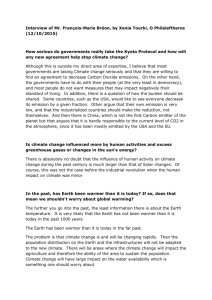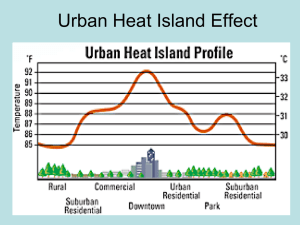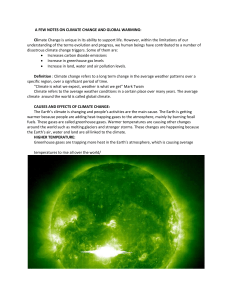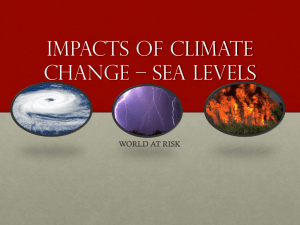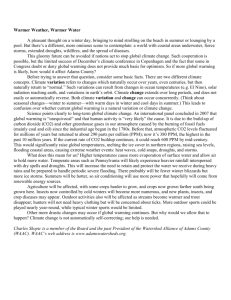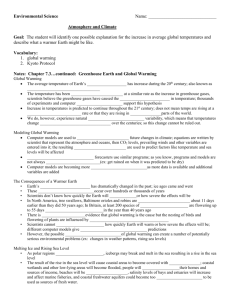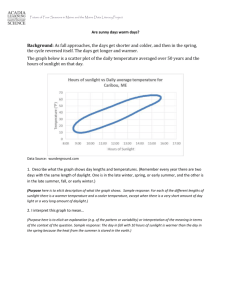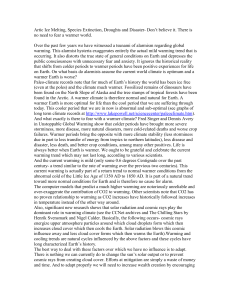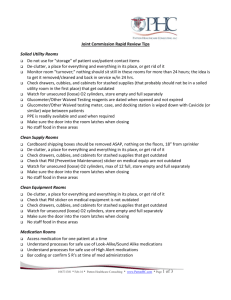Climate Change Report Warns of Dramatically Warmer World This
advertisement
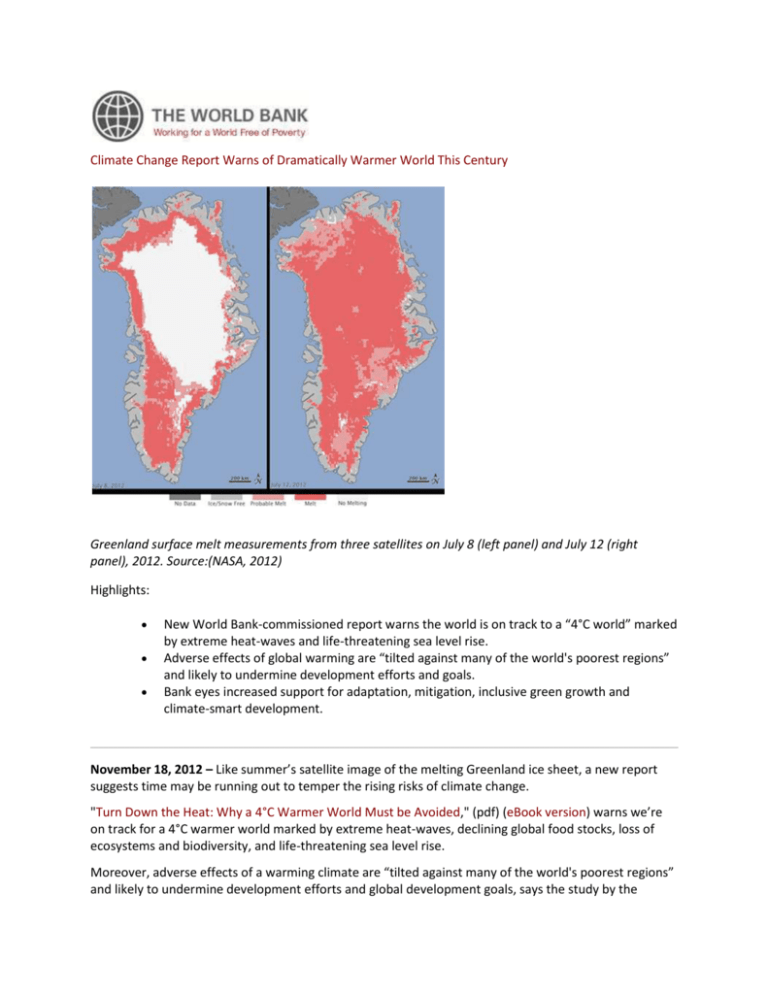
Climate Change Report Warns of Dramatically Warmer World This Century Greenland surface melt measurements from three satellites on July 8 (left panel) and July 12 (right panel), 2012. Source:(NASA, 2012) Highlights: New World Bank-commissioned report warns the world is on track to a “4°C world” marked by extreme heat-waves and life-threatening sea level rise. Adverse effects of global warming are “tilted against many of the world's poorest regions” and likely to undermine development efforts and goals. Bank eyes increased support for adaptation, mitigation, inclusive green growth and climate-smart development. November 18, 2012 – Like summer’s satellite image of the melting Greenland ice sheet, a new report suggests time may be running out to temper the rising risks of climate change. "Turn Down the Heat: Why a 4°C Warmer World Must be Avoided," (pdf) (eBook version) warns we’re on track for a 4°C warmer world marked by extreme heat-waves, declining global food stocks, loss of ecosystems and biodiversity, and life-threatening sea level rise. Moreover, adverse effects of a warming climate are “tilted against many of the world's poorest regions” and likely to undermine development efforts and global development goals, says the study by the Potsdam Institute for Climate Impact Research and Climate Analytics, on behalf of the World Bank. The report, urges "further mitigation action as the best insurance against an uncertain future." A 4°C warmer world can, and must be, avoided – we need to hold warming below 2°C – Jim Yong Kim, President, World Bank Group "A 4°C warmer world can, and must be, avoided – we need to hold warming below 2°C," said World Bank Group President Jim Yong Kim. "Lack of action on climate change threatens to make the world our children inherit a completely different world than we are living in today. Climate change is one of the single biggest challenges facing development, and we need to assume the moral responsibility to take action on behalf of future generations, especially the poorest." The report, reviewed by some of the world’s top scientists, is being released ahead of the next comprehensive studies by the Intergovernmental Panel on Climate Change (IPCC) in 2013/14, and follows the Bank’s own Strategic Framework for Development and Climate Change in 2008 and the World Development Report on climate change in 2010. "Turn Down the Heat" combines a synthesis of recent scientific literature with new analysis of likely impacts and risks, focusing on developing countries. It chronicles already observed climate change and impacts, such as heat waves and other extreme events, and offers projections for the 21st century for droughts, heat waves, sea level rise, food, water, ecosystems and human health. The report says today’s climate could warm from the current global mean temperature of 0.8°C above pre-industrial levels, to as high as 4°C by 2100, even if countries fulfill current emissions-reduction pledges. "This report reinforces the reality that today’s climate volatility affects everything we do," said Rachel Kyte, the Bank’s Vice President for Sustainable Development. "We will redouble our efforts to build adaptive capacity and resilience, as well as find solutions to the climate challenge." The World Bank doubled lending for climate change adaptation last year and plans to step up efforts to support countries’ initiatives to mitigate carbon emissions and promote inclusive green growth and climate-smart development. Among other measures, the Bank administers the $7.2 billion Climate Investment Funds now operating in 48 countries and leveraging an additional $43 billion in clean investment and climate resilience. This report reinforces the reality that today’s climate volatility affects everything we do – Rachel Kyte, Vice President, Sustainable Development, World Bank For the complete version of this handout visit: http://goo.gl/L3HQi
